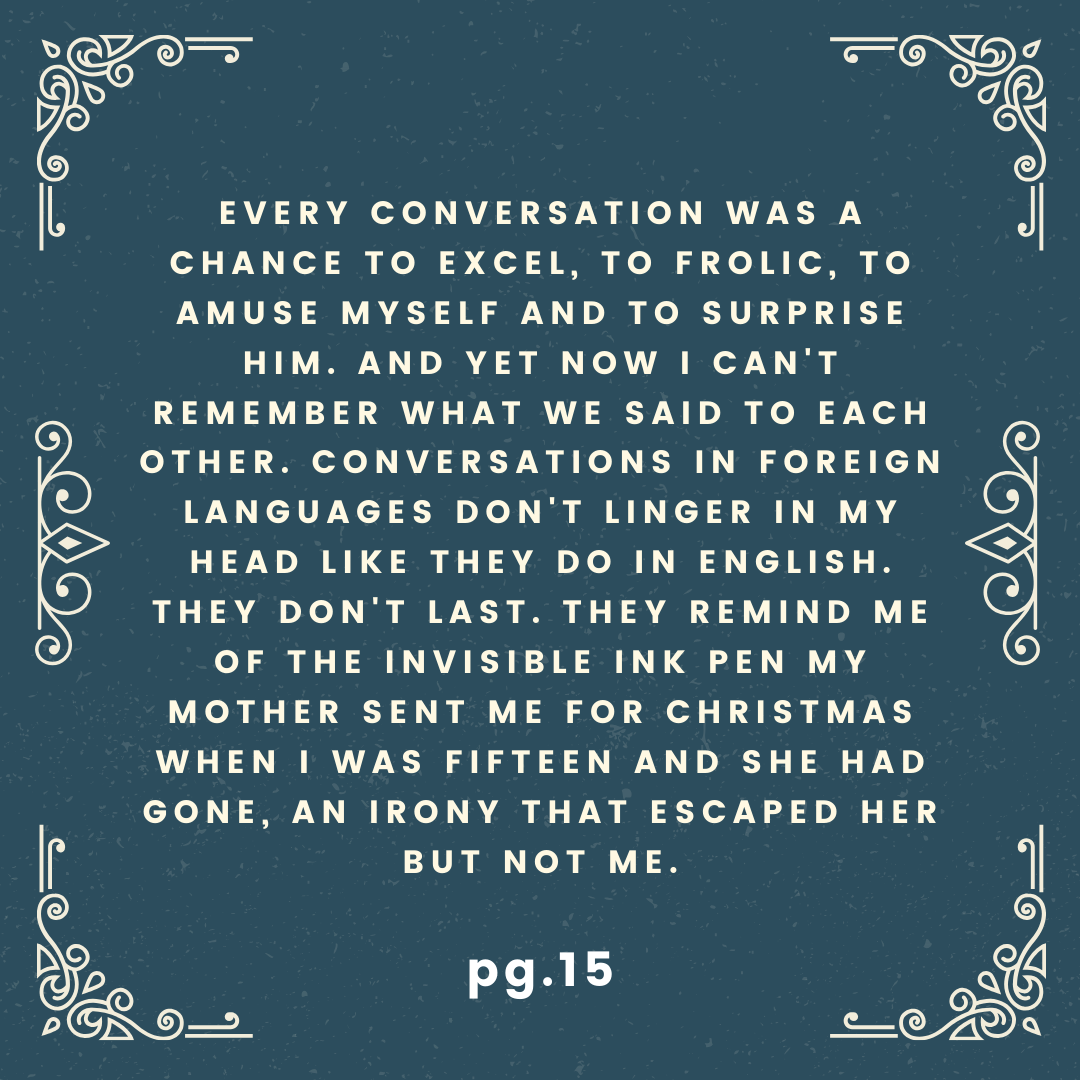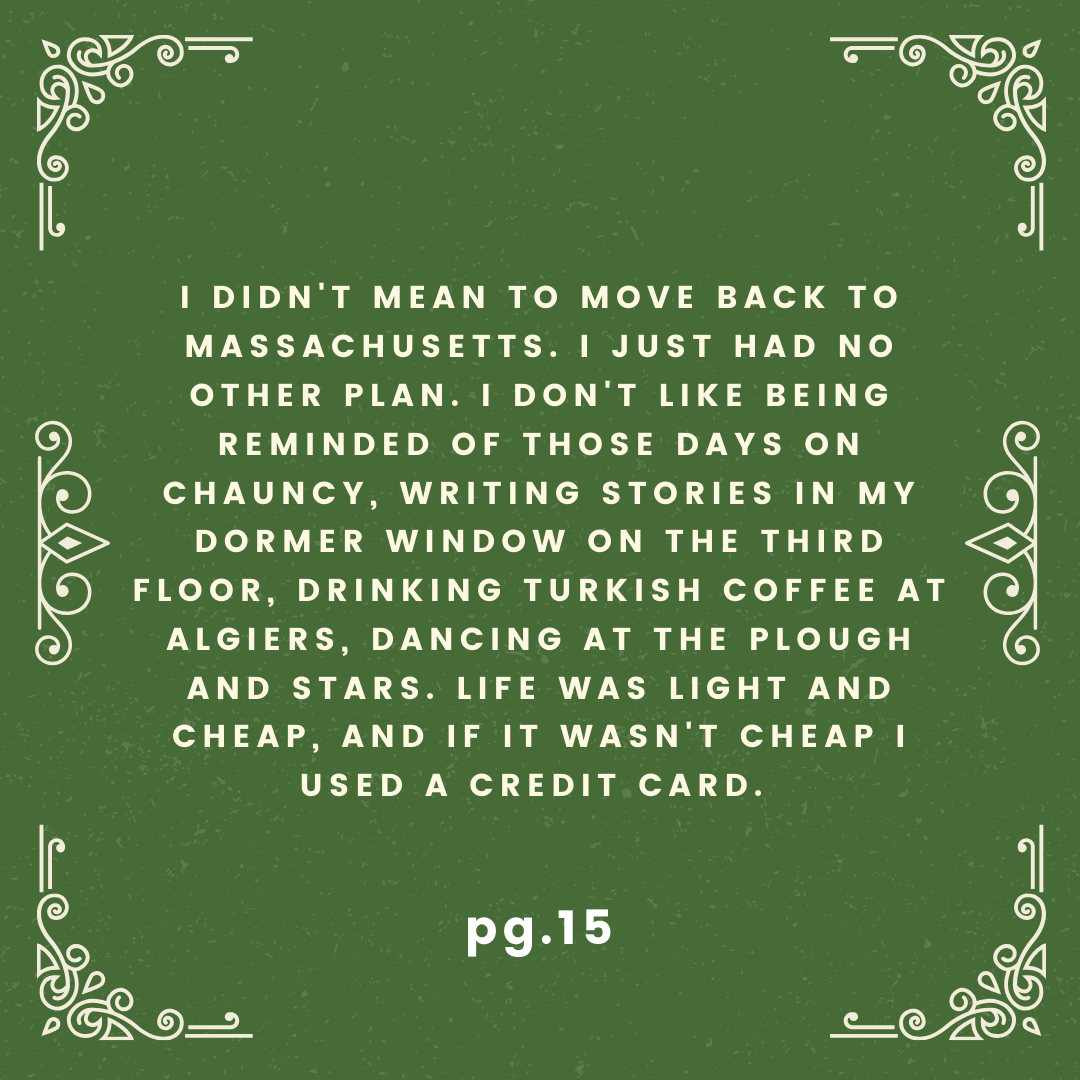Growing Pains: A Review of Writers & Lovers by Lily King
My first read of novelist Lily King, Writers & Lovers (which was released in March), was a quick one. I read it cover to cover in a day. The prose is smooth and uncomplicated.
I suppose it’s suffice to say that this is a coming-of-age story, but the way that everything is quickly resolved in the end feels more like a fairytale. The main character and narrator, Casey Peabody, is a 31-year-old writer and waitress living in Boston in the late 90s. She has student loan debt that eats up most of her income. Her apartment is a former potting shed that is accumulating mold—not exactly what Virginia Woolf had in mind as a room of one’s own. Yet she is determined to finish her novel that she’s been laboriously working on for six years. She unexpectedly lost her mother prior to the start of the novel, she wasted a prestigious writer’s residency by having a fling with someone who she didn’t know was married, and is haunted by ghosts of ex-boyfriends. She wakes up early in the morning to write for a few hours before she bikes to work, and doesn’t get home until well past midnight. She barely sleeps. There is a lot of raw emotion for the first half of the book, which I at first found admirable. But I lost count of the number of times Casey cried, or sobbed, or wept. Yet you root for her, or at least want to, because everyone has felt broken at some point in their lives. Casey’s anxiety is described so well that you feel as though you are in her body yourself.
—
There is so much contained within the 324 pages of this book, that the plot itself seems cluttered at times—between Casey’s waitressing, writing, her mountain of grief, and even a few health scares, a love triangle somehow emerges. Both men are writers, one an older, established author raising two kids, and a high school teacher who matches her wit, each of whom represent a different path of love, family, and security for Casey, but require her to break a pattern of keeping men around who don’t really hear her.
What I enjoyed most about Writers and Lovers was the imagery and descriptive language—King skillfully places you wherever Casey is physically, whether it be her restaurant job during brunch rush or the living room of someone’s house being used for a literary event, quick wit and dialogue included.
The most important takeaway from Casey’s story is how far we are willing to go to keep a dream alive. Most of her friends from college and beyond have given up on their creative pursuits—whether it be going to law school, getting married and having kids, getting jobs with steady paychecks and health insurance. In the beginning of the novel, she deadpans “People stop calling you back when they have babies.”
While Casey does want stability, and the reader wants that for her as well, she is convinced that once she finishes her book, her circumstances will change. The yearning for a better life is believable—later in the book she looks at apartments that are out of her price range but imagines herself living in them.
—
The bones of Writers & Lovers are not unfamiliar or new—but that doesn’t necessarily mean that a story has to be groundbreaking in order for it to be enjoyed, or relatable. Casey wasn’t written as an “everywoman” character but her struggles and triumphs are recognizable in so many of us, myself included. Despite wanting to finish her novel (which she does), early on she still reveals her belief that she’s “wasting her life.” But then again—there has always been the societal expectation of “making something of yourself” that youth is consequently tied to. It doesn’t discriminate against generations.
A significant theme of the story is loneliness, or rather, the loneliness that comes with holding onto a dream. Casey’s stubbornness poses challenges for her, but the biggest challenge of all is having the courage to face the underlying question of whether or not “giving up” a creative pursuit means she’s a failure or if she’s becoming the adult everyone around her wants her to be. But any creative process involves a great deal of patience, something that her former friends didn’t have. When Casey’s snarky landlord says, “I just find it extraordinary that you think you have something to say,” she later acknowledges “I don’t write because I have something to say. I write because if I don’t everything feels even worse.”
—
My grandma, who is stuck in her small town and can’t make the drive to Cleveland, emails me ever so often. She sent me an email earlier this week, the subject line reading “Sunny Day!” In first line, she asked me “Are you writing?” I thought about this neglected book review that’s been sitting in my drafts, my journal that I bring to work thinking I’ll write in it during my lunch break. I felt a twinge of guilt. In the midst of all this I’d forgotten that I was a writer, or that I at least felt like one.
Maybe if I were a beanie-clad lit bro in his second year of his MFA, I’d write a piece about COVID-19 and preface it with that one quote from “The Hollow Men” by T.S. Eliot — This is the way the world ends. Not with a bang, but a whimper. Because that’s the only person who’d be able to get away with something like that. But that’s not me. I mean, I still have occasional bursts of pretentiousness—I wore a t-shirt that said “PLATH” in white block letters across my chest to a karaoke bar last summer, and thought wearing overalls would somehow make it less funny.
Despite taking place during a time where ideas of womanhood and success were different than they are today, the overall poignancy of Writers & Lovers is still relevant today, especially with the current state of the world. Like the novel’s protagonist, we are questioning the validity of our dreams and goals, and whether or not they will survive despite our continued efforts.


